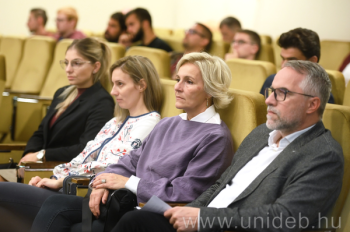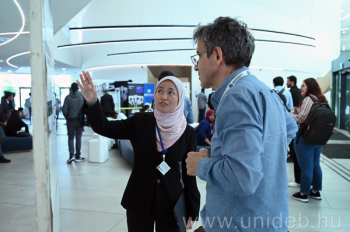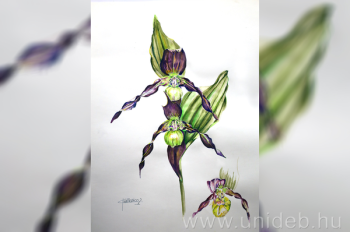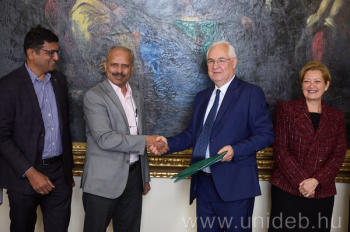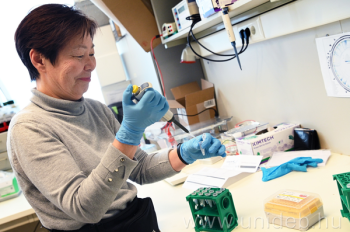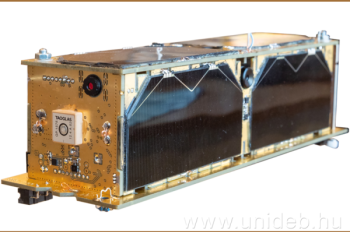The necessity of biodiversity monitoring, modern data collection methods, the socio-economic use of information obtained through monitoring, the launch of the environmental monitoring system of the University of Debrecen and the current phases of the work were also discussed at the 1st Biodiversity Conference.
Hírek Natural science címkével
Saigas and Asian mouflons, i.e. argali sheep, are the focal point of the most recent joint project of Evolutionary Genomics Research Group at the Department of Botany of the Faculty of Science and Technology at the University of Debrecen and the Institute of Biology of the Mongolian Academy of Sciences (MAS). The new Hungarian-Mongolian research project is supported by a mobility grant from MTA [HAS: Hungarian Academy of Sciences].
The cooperation agreement between the Botanical Garden of the University of Debrecen and Hortobágy National Park has been renewed. From now on, the garden located at the edge of the Great Forest will not only help the national park with the preservation, propagation and replantation of endangered or extinct protected plants, but it will also plan and perform the aftercare and follow-up of the replanted plants.
A conference organised by the International Student Union (ISU), an association of foreign students, was held on Thursday at the Learning Center: students enrolled in the English-language programmes of the Faculty of Science and Technology of the University of Debrecen (DE TTK) heard presentations on scientific work, the opportunities of TDK (Students’ Scientific Research) and the institution's talent management programmes.
A paper on the evolution and genetic architecture of a polymorphism restricted to cuckoo eggs has been published in the prestigious journal Science Advances. Several scientists from the University of Debrecen have been involved in the work since 2020.
The plant-themed artwork of Ecuadorian-born graphic artist Luis Guallichico, Assistant Professor at the Department of Ecology of the University of Debrecen's Faculty of Science and Technology, has been featured on the blog of British Ecological Society, too. The work of the laboratory assistant of the HUN-REN-UD Functional and Restoration Ecology Research Group has been inspired by the efforts and dedication of the botanists and ecologists making up the group.
The University of Debrecen has signed a cooperation agreement on research and education with the institution of higher education called Vishwakarma Institute of Information Technology, India. Owing to this partnership agreement, joint training and student exchanges will be possible in the future in the fields of engineering, information technology and natural sciences.
Birds' brains relative to their body mass have grown larger as a result of evolutionary changes over the past 70 million years, according to research conducted by an international team of scientists who recently published a study of the most comprehensive and detailed family tree of bird species in the journal called Nature. An evolutionary biologist at the University of Debrecen, Tamás Székely, was also involved in the project.
The partnership between the Faculty of Science and Technology of the University of Debrecen and the Almaty al-Farabi Kazak National University has reached yet another successful stage. For six months, a researcher from one of Kazakhstan's leading higher education institutions prepared DNA extraction and quality control of tissue samples of rare plants collected in Kazakhstan and brought back to the DE laboratory.
The Hungarian pico-satellite, which was launched in mid-June, is now in orbit and is sending experimental data. The spacecraft of the Budapest University of Technology and Economics (BME) accommodates the instruments of several Hungarian universities, including the University of Debrecen.
